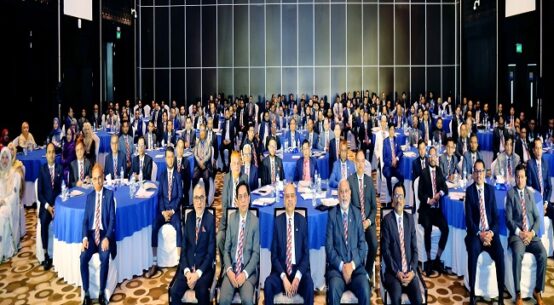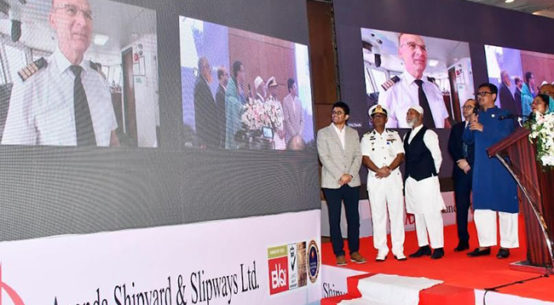Speakers at a roundtable today said Research and Development (R&D) should get more priority both in the public and private universities to get skilled graduates for meeting both the local and global market demand.
Moreover, they also stressed the need to focus on how to mitigate the requirements and the skill gap.
Academicians and industry owners said this at a roundtable discussion titled “Strengthening Collaboration between the Private Sector & Academia: The Way Forward” organised by Dhaka Chamber of Commerce and Industry (DCCI) in the capital on Saturday.
Academicians from different renowned public and private universities took part in the discussion to identify the challenges of industry-academia collaboration.
DCCI President Ashraf Ahmed said every year around two million graduates are entering into the job market, but it is not possible to accommodate all of them. “According to BIDS, unemployment among graduates in the country is 66 percent,” he said.
Furthermore, he said a World Bank (WB) survey reveals that 46 percent of employers struggle to find job seekers with the necessary skills while 69 percent report shortages of skilled manpower for technical and managerial roles.
Ashraf said experts are being hired from outside for key positions to run the industry and billions of dollars are flowing out of the country. “On the other hand, due to lack of skills, our manpower is not getting highly paid jobs abroad.”
Industry-academia needs to work together to develop both soft and hard skills of the graduates, he added.
Besides, shared efforts and contributions by universities and private sector on research of contemporary matters can enrich and create new learning on macroeconomic matters, the DCCI president continued.
Dr. Muhammad Anisuzzaman Talukder, Professor of BUET, said there should have been a strong trust between the industry and academia sector.
In Bangladesh, the university curriculum is quite good, but in some cases few good things can be included, he said, adding: “But frequent changes in curriculum will not bring any good result for the students.”
Vice-Chancellor (VC) of University of Liberal Arts Bangladesh (ULAB), Professor Imran Rahman said around 40 percent of young graduates are still unemployed while there is a need to do something for them.
He therefore suggested for apprenticeship for better learning out of the theoretical background.
Imran also urged for popularizing ICT and science-based education more to compete with the rapidly moving world. Moreover, he said private funding in the university Research and Development or students’ projects should get tax benefits.
Prof of North South University (NSU) Dr. AKM Waresul Karim, Dean of Bangladesh University of Professionals (BUP) Brigadier General Mohammad Saadat Hossain, its Director of International Affairs Lieutenant colonel (retd) Khondoker Zahirul alam, Prof Dr. Mohammad Zahedul Alam, Assistant Director of FBS Md. Yeashir Arafat, Dean of Dhaka International University (DIU) Prof Dr. Mohammed Masum Iqbal, Pro-VC of American International University-Bangladesh (AIUB) Dr. Md. Abdur Rahman, its Prof Dr. Partha P.
Chowdhury, Prof of United International University (UIU) Dr. Salma Karim, its Associate Prof Dr. Md. Quamruzzaman, Dean of Northern University Bangladesh (NUB) Prof Nazmul Ahsan Khan, its Assistant Prof Khairul Alam and Prof of Institute of Business Administration (IBA) University of Dhaka (DU) Dr. Khaled Mahmud also took part in the discussion.
The speakers also suggested for utilizing corporate CSR funds for university research and development work.
Speakers also recommended a faster approval process of the new curriculum by the University Grants Commission (UGC). They also requested the private sector to come forward for students’ project funding.
DCCI Vice-President Md. Junaed Ibna Ali, Director Mohammad Saifur Rahman Saif and Convenor Ismet Zerin Khan were also present at the discussion.


